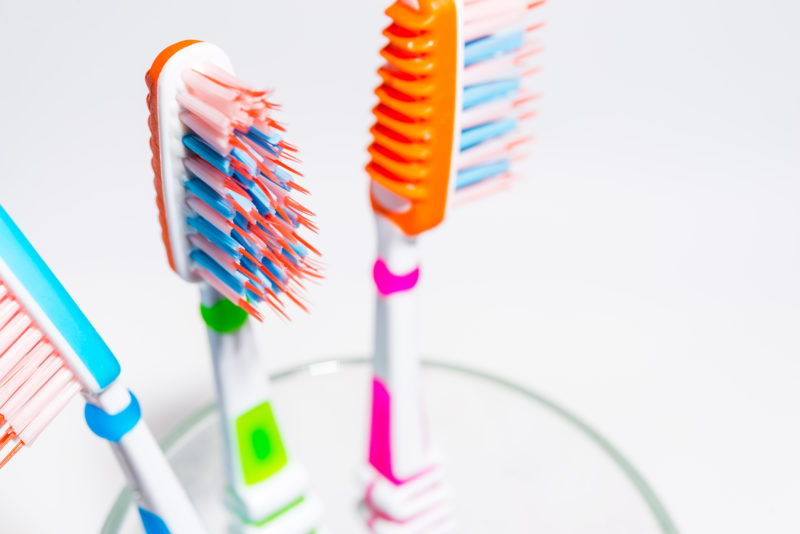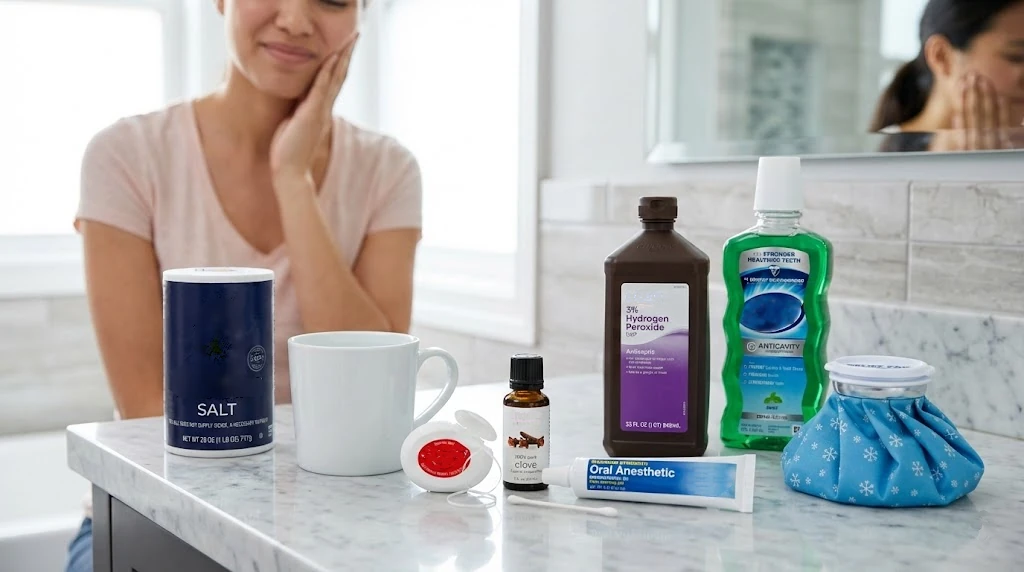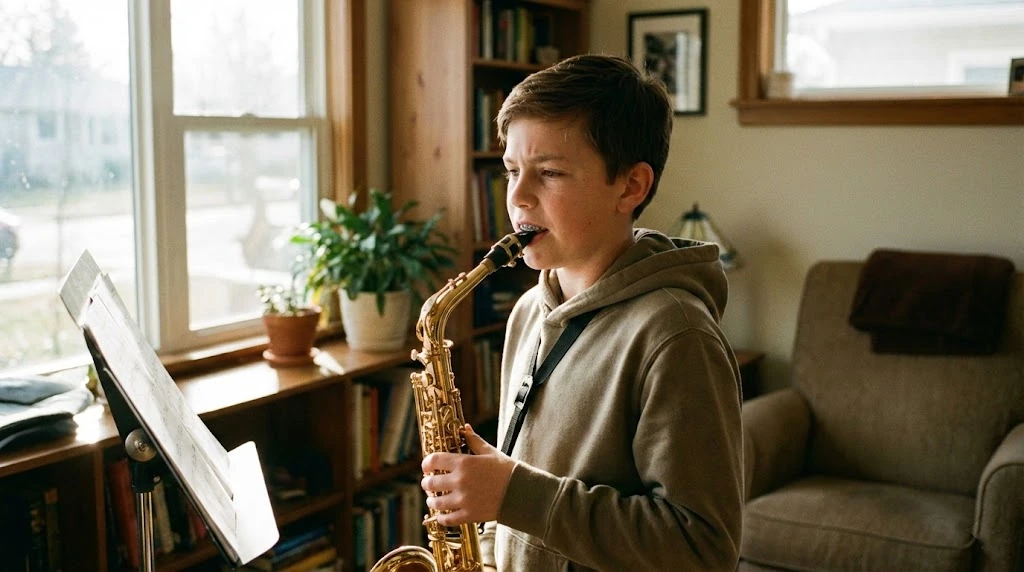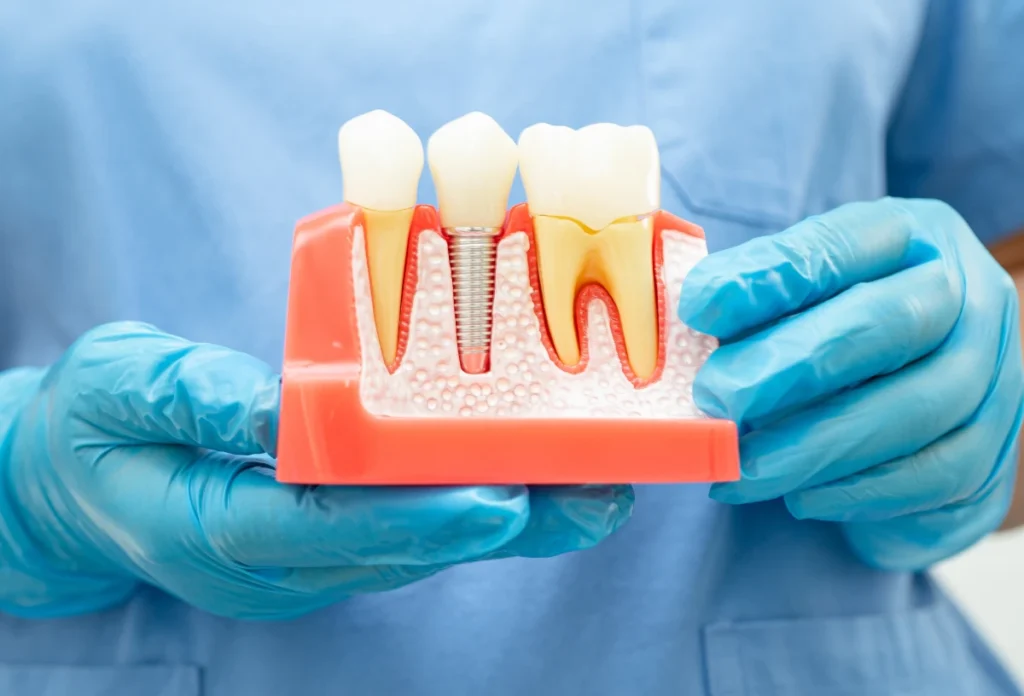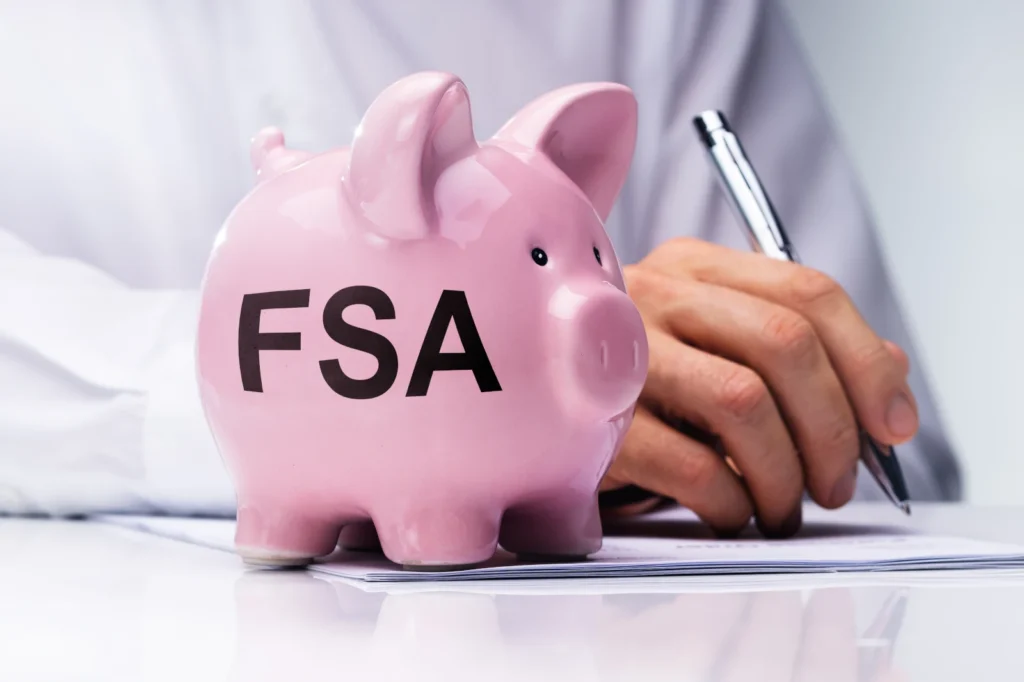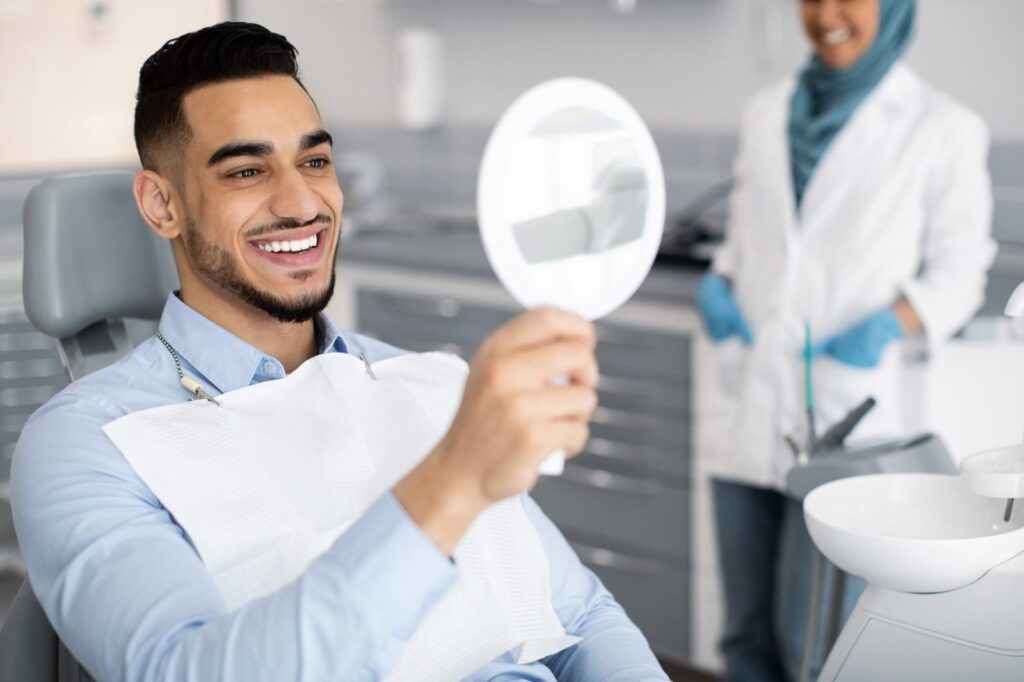Updated: 2/21/2020
The toothbrush. The most essential and basic dental health tool. Most of us have been brushing our teeth since we were small, but did you ever stop to think that the toothbrush you use could be damaging your teeth even as you scrub away the plaque?
How Can Brushing Damage Your Teeth?
Believe it or not, you can actually do some serious damage to your teeth simply by brushing improperly or using the wrong kind of toothbrush.
Stiff Bristles
Most dentists recommend using a soft-bristled toothbrush even if it feels like you’re not able to scrub very well with it. Stiff-bristled brushes can scratch your teeth and eventually scrub away the enamel! Some people have even cracked their teeth simply from brushing with a stiff toothbrush for so long that it continued to wear down the tooth even after wearing away the enamel layer. It can also cause the gums to recede or pull away from the teeth. This damage is easily preventable simply by using a soft one.
Too Much Force
Another way to damage your teeth by brushing is to always brush the same direction or apply too much force, which could scratch your teeth. For example, if you always scrub your teeth side-to-side, your dentist will probably be able to tell by a horizontal roughness on the surface of your teeth. Proper technique is more important than all the bells and whistles of the tool with which you do it.
Toothbrushes: What’s the Difference?
Walk down any oral health care aisle in the store, and you’ll be overwhelmed by all the products claiming to whiten your teeth, give you fresh breath, blast away plaque and do the BEST job of taking care of your mouth. They can’t all be the BEST, but are there really significant differences between any of them?
Electric or manual? Stiff-bristled or soft? Plain handle or squishy gel support grip? Many dentists give their patients a free toothbrush whenever they get a cleaning. Should we avoid the toothbrush because it’s a cheap giveaway, or should we use it because the dentist knows what toothbrush would be best?
The abundance of options might cause you to not care at all and use whatever toothbrush you happen to grab on the shelf, or it might send you into a frantic search for the perfect toothbrush. With a few quick tips, however, you don’t have to settle for either of these options.
The Best Toothbrush
Rather than going for the toothbrush with the most sparkly packaging or the longest list of extra features, here are a few simple guidelines for choosing the best toothbrush.
- Soft bristles – You don’t want to scrape off the enamel along with the plaque!
- Fun handles – For children (or adults!), this could help encourage good dental habits by making it fun. The same goes for grown-ups: If a contoured gel handle in your favorite color will help you brush more often, you don’t have to settle for the plain gray plastic! But if you don’t want to shell out an extra $2 for a fancy handle, the plain plastic is just as effective.
- Brush head – Some people like to use a large toothbrush head because they feel like they can cover more surface with each swipe, but some people with a sensitive gag reflex or who want to reach every crevice may prefer smaller heads. This is entirely up to personal preference.
- Electric toothbrushes don’t necessarily do a better job of cleaning your teeth, they simply make it easier to brush. It’s up to you if you prefer to move the brush around yourself or let a couple of batteries do it for you.
- Replace your toothbrush every 3 months so germs don’t build up and the brush doesn’t become worn out and ineffective. If you don’t like your current toothbrush, you can switch to a new one.
Keep these tips in mind, and next time you’re in the market for a toothbrush, you’ll be able to discern what is important and what is simply a matter of preference.

